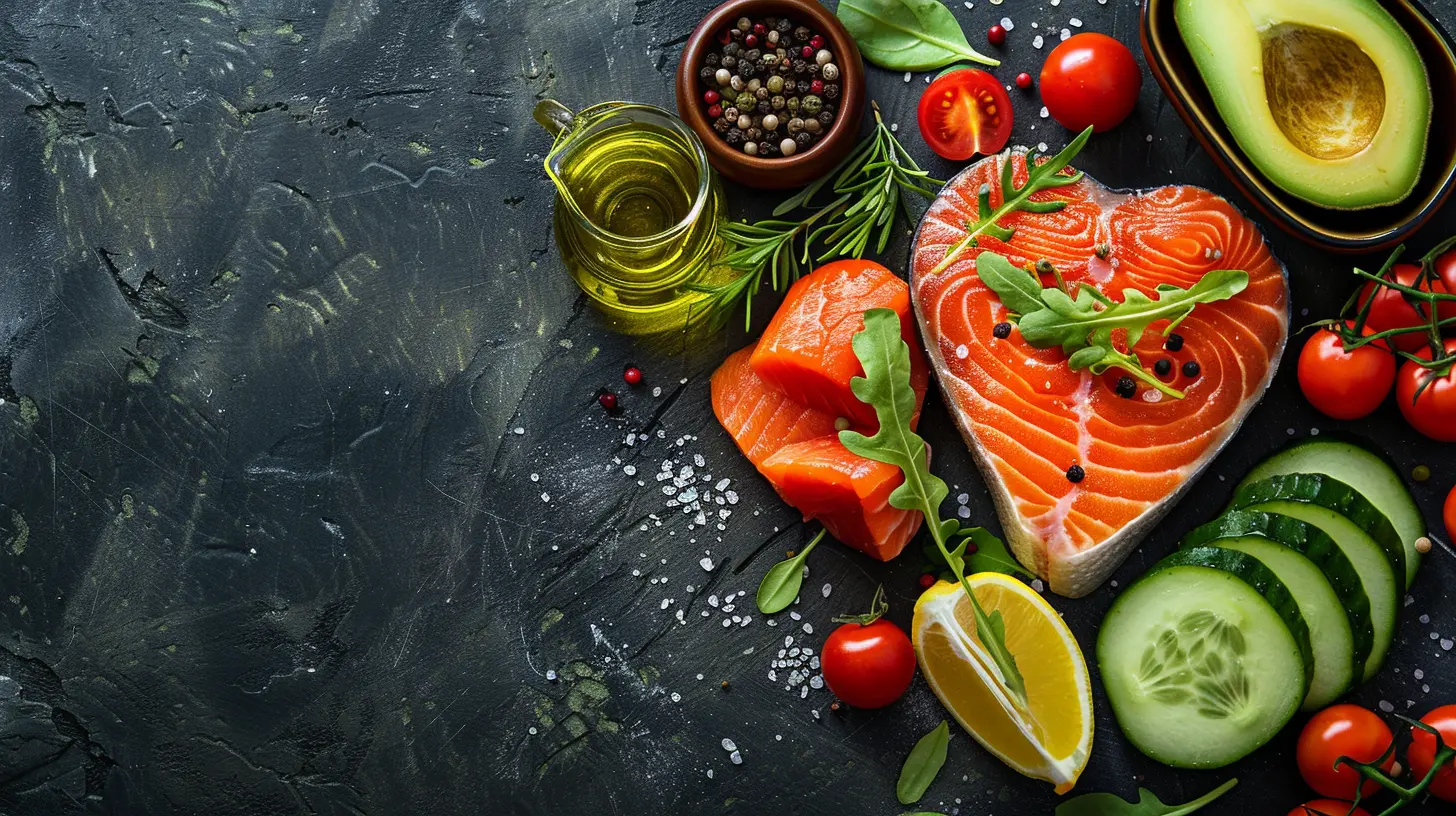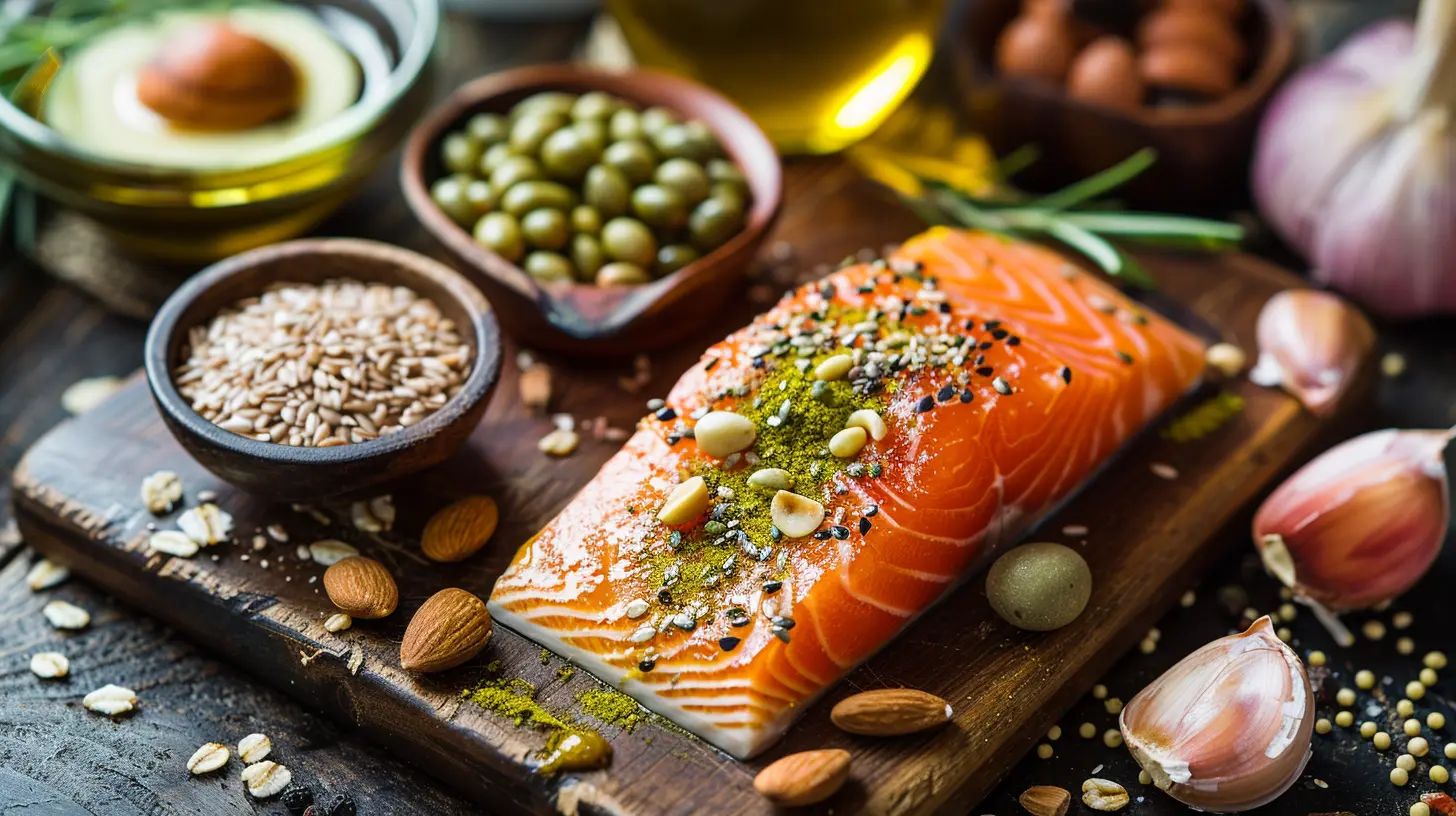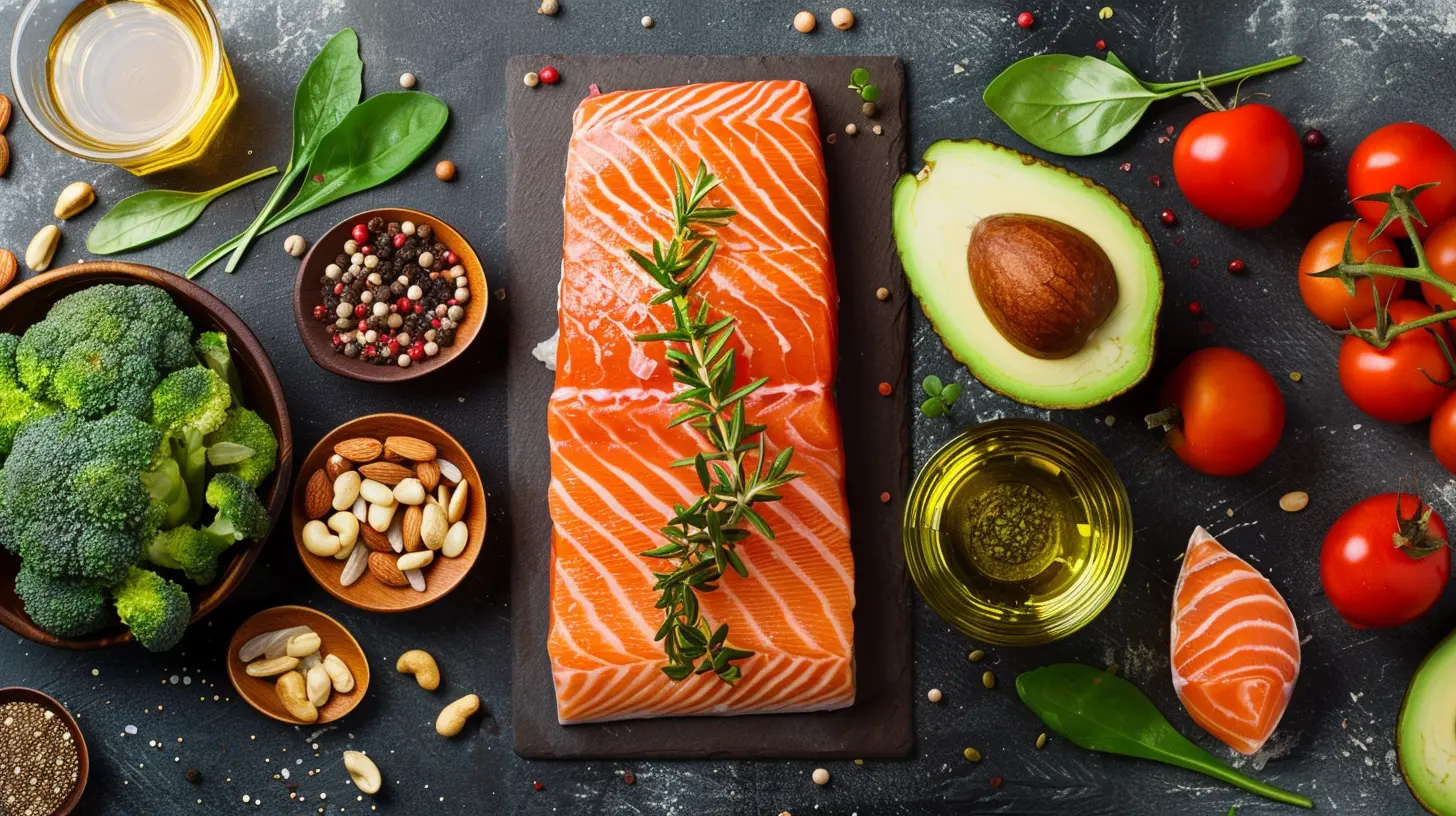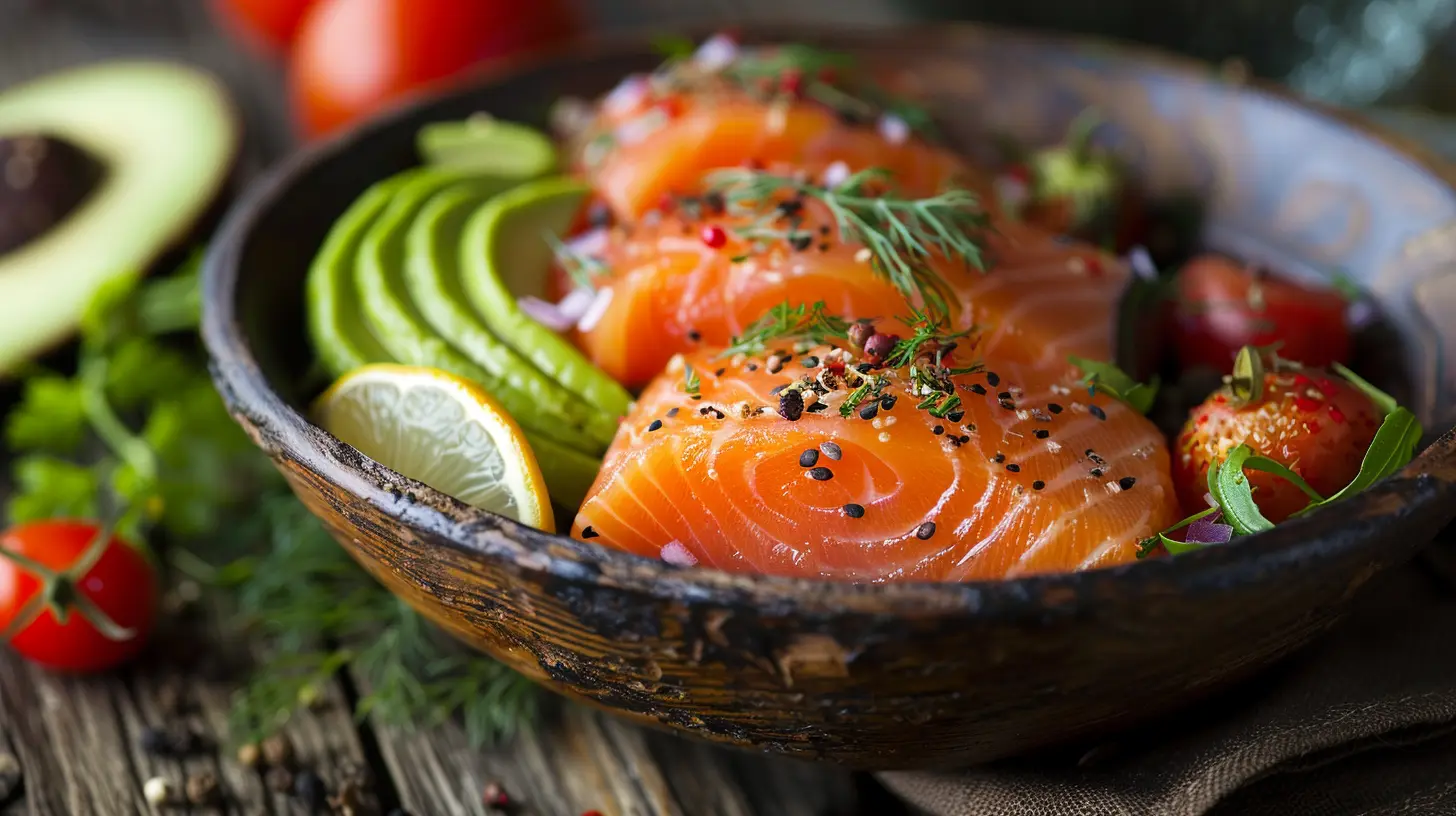How to Incorporate More Heart-Healthy Fats Into Your Diet
14 May 2025
Taking care of your heart isn’t just about cutting back on the “bad stuff” like saturated fats and processed junk food—it's also about embracing the good stuff, especially heart-healthy fats. Yep, you read that right. Not all fats are the enemy. In fact, some fats are your heart’s best friend.
So if you're wondering how to add more of the good kinds of fats into your daily meals without making it complicated, you’re in the right place. Let's break it down in a practical, friendly way—because boosting your heart health shouldn't feel like rocket science!
Why Fats Aren’t the Villain Anymore
For years, fat had a seriously bad rep. Remember the low-fat craze in the '90s? Every label screamed “Fat-Free” like it was the ultimate health move. But here's the truth: not all fats are created equal.There are unhealthy fats (like trans fats and too much saturated fat), and then there are healthy fats—monounsaturated and polyunsaturated fats, to be specific. These are the MVPs when it comes to protecting your heart, lowering bad cholesterol (LDL), and giving your body long-lasting energy.
Meet Your Heart’s Best Buddies: The Good Fats
Let’s get personal with the types of fats that actually help your heart:1. Monounsaturated Fats
These fats help reduce bad cholesterol levels and might help control blood sugar levels too. You’ll find them in:- Olive oil
- Avocados
- Nuts (almonds, cashews, peanuts)
2. Polyunsaturated Fats
These come in two main types—omega-3 and omega-6 fatty acids. Both are essential, but omega-3s are the real heroes for heart health.- Fatty fish (salmon, mackerel, sardines)
- Walnuts
- Chia seeds
- Flaxseeds
- Sunflower oil
3. Omega-3 Fatty Acids
These reduce inflammation, help lower the risk of heart disease, and even support brain health. Think of them as your heart’s calming balm.
Simple Ways to Add More Heart-Healthy Fats to Your Diet
Now that we know which fats are on our side, let’s get to the fun part—how to actually eat more of them!1. Start With Your Cooking Oils
One of the easiest swaps? The oil you cook with. If you’re still using butter or margarine for sautéing or baking, consider switching to:- Extra virgin olive oil for salad dressings, roasting veggies, or even drizzling over toast.
- Avocado oil, which has a high smoke point—perfect for frying or grilling.
- Canola oil, which is super mild and full of omega-3s.
2. Snack Smart with Nuts and Seeds
Tired of boring old crackers or granola bars? Switch up your snack game:- A handful of almonds or walnuts can keep you full for hours.
- Chia or flaxseeds stirred into yogurt or smoothies give you a fiber and omega-3 boost—without even noticing.
Bonus tip: Keep a small jar of mixed nuts in your bag or car for an on-the-go energy kick.
3. Make Avocados Your New Best Friend
Avocados aren't just trendy—they’re loaded with monounsaturated fats and nutrients. Here’s how to use them:- Spread mashed avocado on toast instead of butter.
- Toss avocado slices into salads or wraps.
- Blend them into smoothies for a creamy (and sneaky healthy) texture.
Avocados are like the Swiss Army knife of heart-healthy foods—so versatile and always useful.
4. Eat More Fatty Fish (It’s Easier Than You Think)
You don’t need to become a seafood expert to enjoy fatty fish. Aim for at least two servings a week. Here are a few ideas:- Make a simple baked salmon with garlic and lemon.
- Add canned sardines or tuna to salads.
- Grill some mackerel for a quick dinner.
Not a big fish fan? Try fish oil supplements—but whole food sources are always better when possible.
5. Go Greek with Yogurt and Cheese
Full-fat dairy isn’t always the villain. In moderation, full-fat Greek yogurt and cheeses like feta or goat cheese can offer healthy fats and protein.- Mix Greek yogurt with berries and flaxseeds for a powerful breakfast.
- Add a sprinkle of cheese to your salad instead of creamy dressings.
6. Use Nut Butters Wisely
Peanut butter isn’t just for kids. Natural nut butters (without added sugar or hydrogenated oils) are a rich source of heart-healthy fats.- Spread almond or peanut butter on toast or apple slices.
- Blend into smoothies.
- Stir into oatmeal for extra richness and flavor.
Tip: Look for nut butters with just one or two ingredients—nuts and maybe a pinch of salt. That’s it.
Watch Out for the Fat Traps
Even when adding the good fats, it’s easy to go overboard. Fats are calorie-dense, which means they can sneak up on your portion sizes. Moderation is key. Here’s a quick rule of thumb:- A serving of nuts? About a small handful.
- Avocado? Half of one is usually enough.
- Olive oil? Stick to a tablespoon or two when cooking.
Also, be alert for "health halos." Just because something contains good fats doesn’t mean it's automatically healthy. (Looking at you, "keto" desserts loaded with coconut oil and stevia.)
Smart Substitutions You’ll Actually Enjoy
Want to make your meals healthier without sacrificing flavor? Try these easy swaps:- Use mashed avocado instead of mayo in sandwiches.
- Top your salad with seeds instead of croutons.
- Grill fish instead of frying it.
- Make your own salad dressings using olive oil and vinegar—ditch the store-bought ones full of mystery ingredients.
- Toss roasted chickpeas or sunflower seeds into your soup for added crunch and healthy fat.
These little changes make a big difference—and honestly, they taste amazing too.
What About Saturated Fat?
Not all saturated fats are evil, but the general advice is still to eat them in moderation. Foods like fatty cuts of red meat, butter, and full-fat cream can be enjoyed occasionally but shouldn’t be your go-to.Try reducing saturated fats by:
- Swapping red meat for fish or poultry a few times a week.
- Replacing butter with olive oil for cooking or baking.
- Choosing low-fat dairy if it suits your taste and dietary needs.
Balance is the name of the game.
The Heart-Healthy Fats Lifestyle: More Than Just a Diet
Incorporating good fats isn't about jumping on a trend or doing a temporary thing—it’s about building lasting habits that support your heart (and your whole body). It’s like upgrading your engine oil for better performance. Your body will thank you in the long run.Start small. Switch one thing at a time. Maybe today it’s adding walnuts to your breakfast. Tomorrow, you cook with avocado oil instead of vegetable oil. Before you know it, your habits will align with your heart-health goals—without the stress.
Final Thoughts: Love Your Heart, One Bite at a Time
Heart-healthy eating doesn’t have to be bland, strict, or overwhelming. By focusing on the right kinds of fats—those natural, unprocessed, nutrient-rich gems—you’re giving your body the fuel it actually craves.And you don’t need fancy ingredients or expensive groceries to make it happen. Often, the best choices are the simplest ones. Think olive oil, avocados, a handful of nuts, the occasional grilled salmon—it’s all flavorful, filling, and giving your heart a helping hand.
So the next time someone says, “Watch your fat intake,” you can smile and say, “You mean the good kind, right?”
Cheers to better habits and a happy heart!
all images in this post were generated using AI tools
Category:
Healthy HeartAuthor:

Tiffany Foster
Discussion
rate this article
4 comments
Dixie Lambert
Great tips! Incorporating more heart-healthy fats is essential for overall wellness. Simple changes, like using olive oil instead of butter or snacking on nuts, can make a big difference. It's all about balance—enjoy those avocados and fatty fish for a healthy heart!
May 30, 2025 at 4:55 AM

Tiffany Foster
Thank you! I’m glad you found the tips helpful. Small changes like those can indeed lead to significant health benefits!
Lucy Underwood
Thanks for sharing these valuable tips! Incorporating heart-healthy fats can truly make a difference in our overall well-being. Cheers to better health!
May 28, 2025 at 4:23 AM

Tiffany Foster
Thank you for your kind words! I'm glad you found the tips helpful. Cheers to your health!
Greta Stone
Incorporating heart-healthy fats, such as avocados, nuts, and olive oil, can significantly enhance cardiovascular health. These fats promote good cholesterol levels and reduce inflammation. By substituting saturated fats with these healthier options, individuals can improve their overall heart health while enjoying flavorful meals. Balance and moderation remain key for optimal benefits.
May 25, 2025 at 2:32 PM

Tiffany Foster
Absolutely! Incorporating heart-healthy fats like avocados, nuts, and olive oil not only enhances flavor but also supports cardiovascular health. Remember to focus on balance and moderation for the best results!
Karen Dillon
Prioritize avocados, nuts, and olive oil.
May 23, 2025 at 4:06 AM

Tiffany Foster
Great suggestion! Avocados, nuts, and olive oil are excellent sources of heart-healthy fats.



